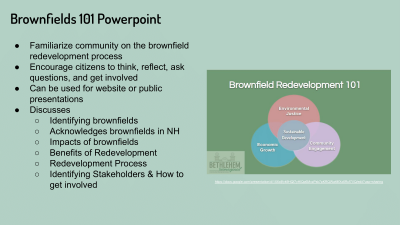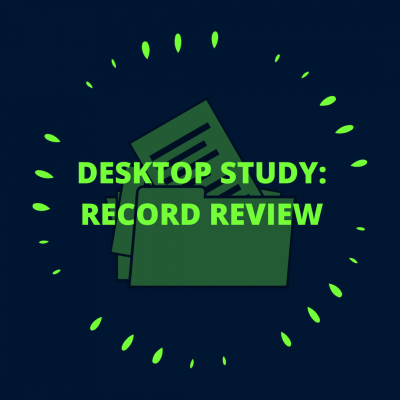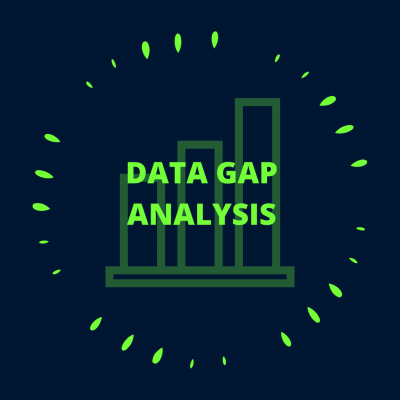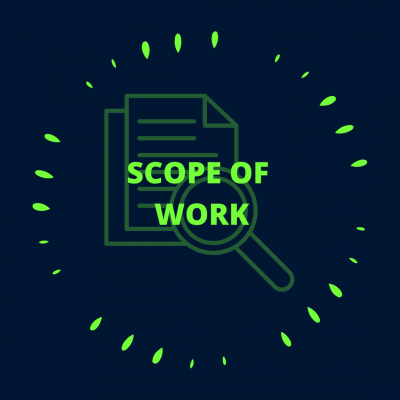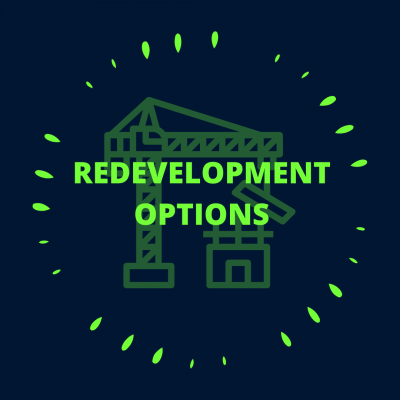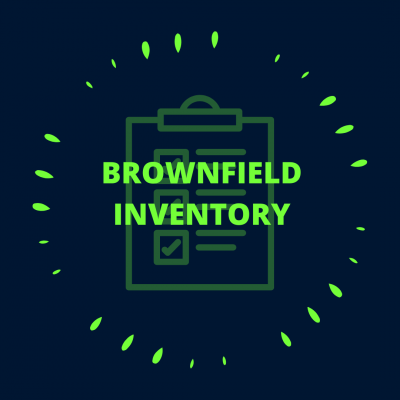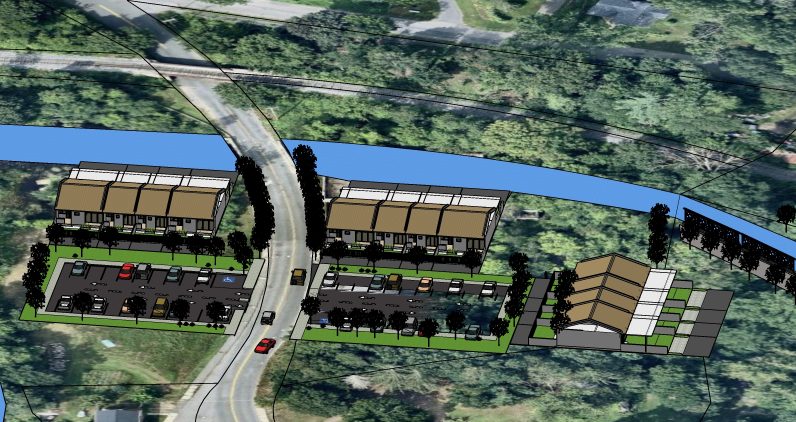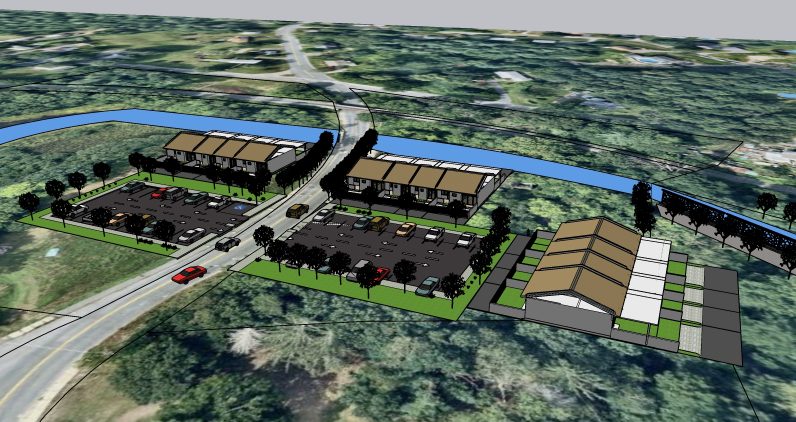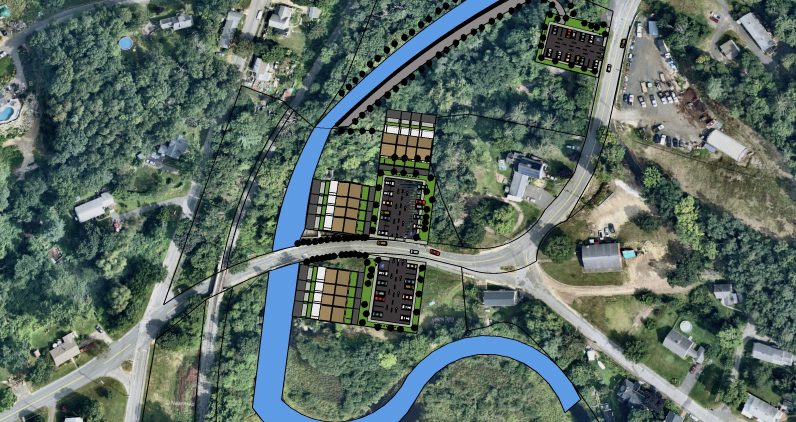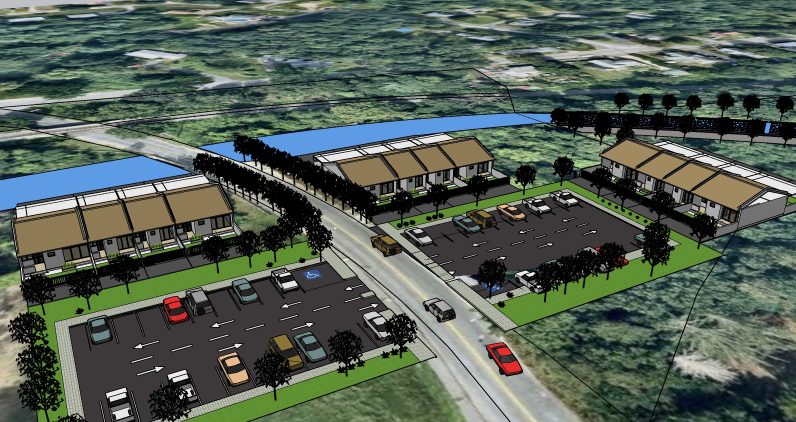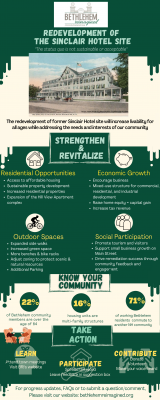
All projects will be led by a UConn student intern and overseen by the UConn TAB team. Each project deliverable will include a summative report put together by the UConn student Interns. The UConn TAB MAP follows the UConn academic semesters and has three rounds each year.
The MAP opens a Request for Proposals (RFPs) 3 times a year:
- In July, for consideration in the Fall semester. Services supported include research for EPA brownfield grant proposals.
- Grant Proposal Review: Click Here to learn more about getting your proposal reviewed before submission
- In November, for consideration in the Spring semester. Services supported include development of brownfields inventories, data collection for brownfields sites, technical document reviews, and evaluation of redevelopment options. See our Webinar for more details
- In May, for consideration in the Summer semester. Services supported include development of brownfields inventories, data collection for brownfields sites, technical document reviews, and evaluation of redevelopment options.
Spring Requests for Proposals will be due by November 29th!
To view the types of projects covered during the Spring and Summer MAP, see below.
Types of Projects for Spring and Summer MAPs
Desktop Study – Record Review
- Desktop study for specific brownfield sites including environmental site conditions and record review.
-
- Resources needed from community
- Any existing documents related to the site
- Resources needed from community
- List of Services/Deliverables
- Report and presentation of findings and next steps
Communities Supported:
East Hampton, CT (Summer 2022)
Data Gap Analysis
- Review previous site investigation reports and preparation of summaries and data gap analysis for a particular brownfield site:
- Resources needed from community
- Must provide all documents and records
- List of Services/Deliverables
- Report summarizing findings
Communities Supported:
Killingly, CT (Summer 2022)
Brockton, MA (Summer 2022)
Scope of Work
- Develop drafts Scope of Work and budget estimates for Phase II investigation for a particular brownfield site:
- List of Services/Deliverables
- Final report and presentation
- Suggestion of next steps
Redevelopment Options
- Evaluate redevelopment options for priority sites in a municipality or region;
- Resources needed from community
- Planning Studies
- Community’s Vision
- List of Services/Deliverables
- Report with all zoning, utilities, traffic, wetlands, flood zone, etc. considerations applied to redevelopment option
- Renderings of redevelopment scenarios using SketchUp
Communities Supported:
Monson, MA (Spring 2022)
Lyndon, VT (Spring 2022)
Waterbury, CT (Spring 2022) – 2 projects
Claremont, NH (Summer 2022)
Brownfield Inventory
- Create Brownfield inventories for NE communities (detailed lists, GIS maps)
- List of Services/Deliverables
- List of determined brownfields with current status (See template)
- Map of sites in community
- Prioritization of properties based on community and redevelopment
- Resources needed from community
- List of potential sites in community (not already included on DEEP list)
- List of tax delinquent non-resident properties
-
Communities Supported:
Athol, MA
Attleboro, MA (Spring 2022)
Hamden, CT (Summer 2022)
Bethany, CT (Summer 2022)
Winchester, CT (Summer 2022)
Community Outreach
- Prepare community engagement materials (website content, materials for surveys) or prepare an engagement plan for a particular community impacted by the presence of brownfields
- List of Services/Deliverables
- Brownfields 101
- Infographic
- Story Map
- Engagement Plan
Communities Supported:
Bethlehem, NH (Spring 2022)
Pawtucket, RI (Summer 2022)
Bridgeport, CT (Summer 2022)
Community Engagement in Bethlehem, NH
